A Conversation with Bruce Duffie
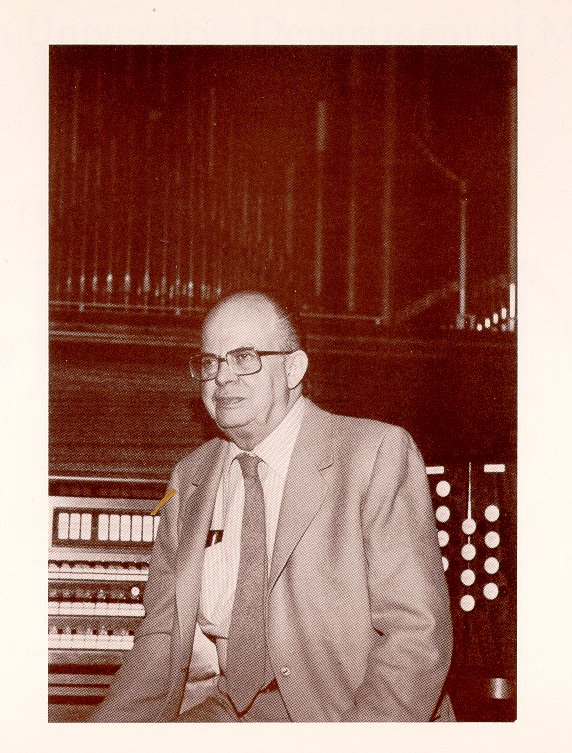

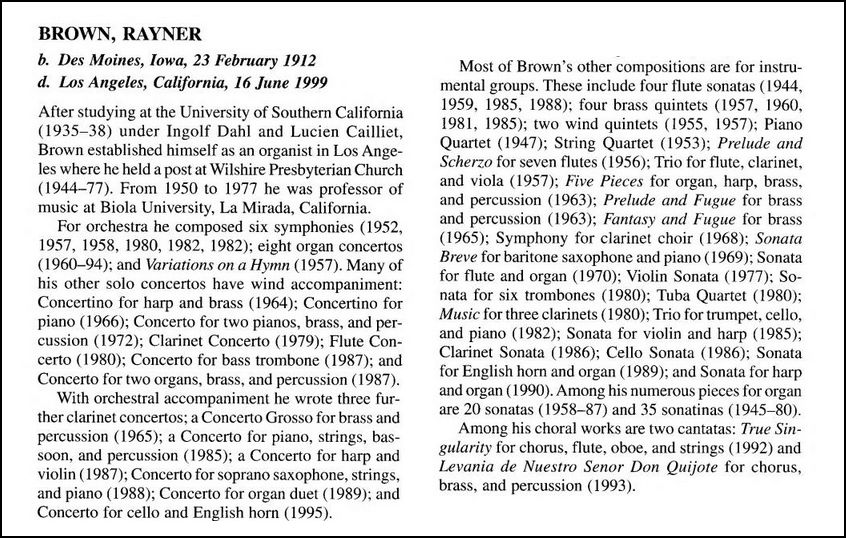
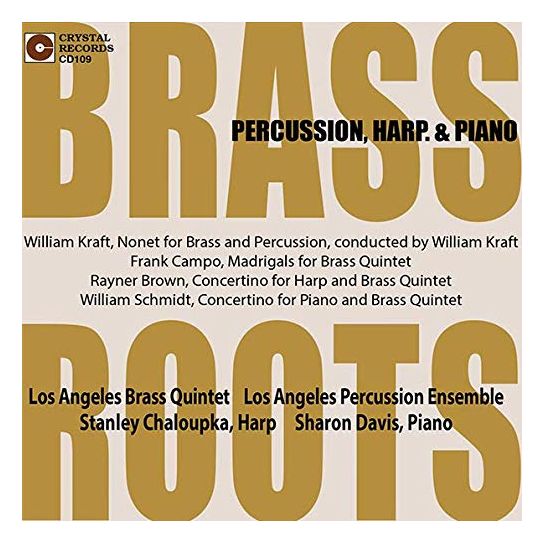 Soon after contacting him, Rayner Brown agreed to allow me
to call him for a conversation, and on the last day of August, 1987,
we spoke of musical things . . . . .
Soon after contacting him, Rayner Brown agreed to allow me
to call him for a conversation, and on the last day of August, 1987,
we spoke of musical things . . . . .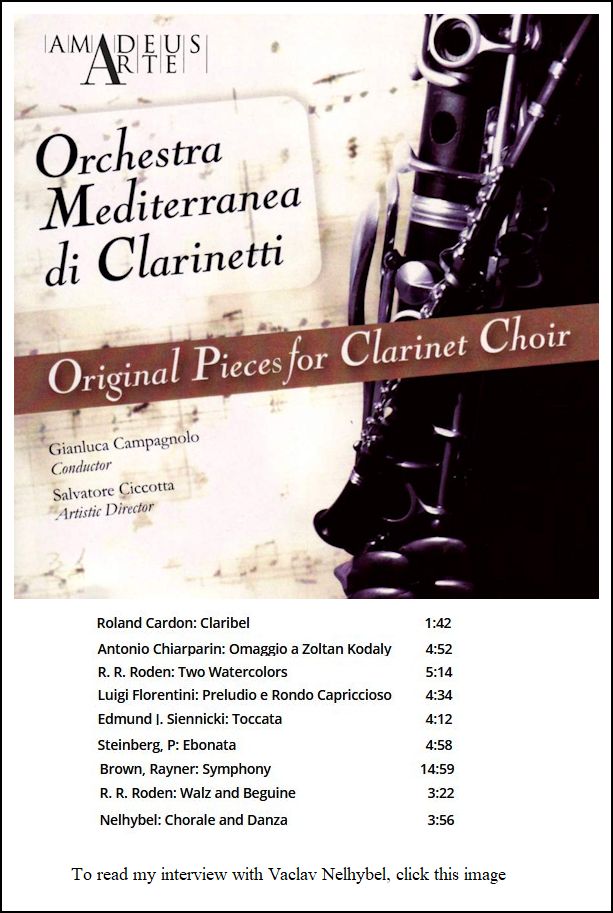 BD: Has any of this improved at
all over the years, or has it gotten worse?
BD: Has any of this improved at
all over the years, or has it gotten worse?|
Born May 22, 1891 at Dampierre-sur-Moivre, in northern France, Lucien
Cailliet studied at several French music conservatories before graduating
from the Dijon Conservatory at age twenty-two. He also received a
degree from the National Conservatory in Paris. He was a bandmaster
in the French Army and, in 1915, he toured the United States with the
French Army Band.
In 1933, Cailliet performed Reynaldo Hahn's Sarabande et Theme
on bass clarinet with Leopold Stokowski and the Philadelphia Orchestra.
In 1937, he made a new arrangement of Modest Mussorgsky's piano suite
Pictures at an Exhibition. As Cailliet said in a radio interview quoted by Obert-Thorn, the method of Stokowski was to sketch his orchestration on sheet music of the original work. He would indicate which instruments should play each phrase, where he wanted a certain reed, or where he wanted a combination of reeds and brass, as well as dynamics. Stokowski passed this along to Cailliet, who wrote out a full score according to Stokowski’s directions. Then Stokowski would rehearse the orchestra and make alterations after the rehearsal. Evidence lies in manuscripts with Stokowski’s handwriting, where he wrote in French (such as “bois” for “woodwinds”) because the French-speaking Cailliet needed a guide to start his work. Cailliet said about the transcriptions, “It was his [Stokowski’s] idea completely, and of course he was himself a very good orchestrator. He made a very good choice of instruments.” That was a description of Stokowski’s transcriptions, whereas Cailliet’s — as heard on this CD — were entirely his own. He also made several arrangements for clarinet choir that have become staples of the repertoire. Many Cailliet orchestrations were recorded by a plethora of orchestras. He contributed to nearly fifty films as either composer or arranger. Among the best known of these films are She Wore a Yellow Ribbon, The Ten Commandments (for which Elmer Bernstein wrote the score), and Gunfight at the O.K. Corral. His most famous orchestration is the virtuoso piece for piano and orchestra Midnight on the Cliffs by the pianist and composer Leonard Pennario, for the Andrew L. Stone film Julie (1956). He died on January 3, 1985. |
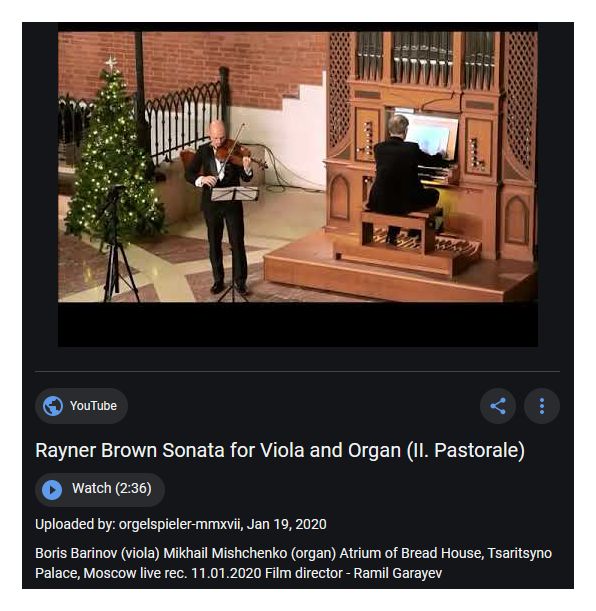 Brown: Yes, I’ve written more for organ
than anything else, and I’ve written a great deal for organ with the
other instruments — like organ and
flute, organ and clarinet, and so forth. Then I have seven concertos
for organ with orchestra.
Brown: Yes, I’ve written more for organ
than anything else, and I’ve written a great deal for organ with the
other instruments — like organ and
flute, organ and clarinet, and so forth. Then I have seven concertos
for organ with orchestra.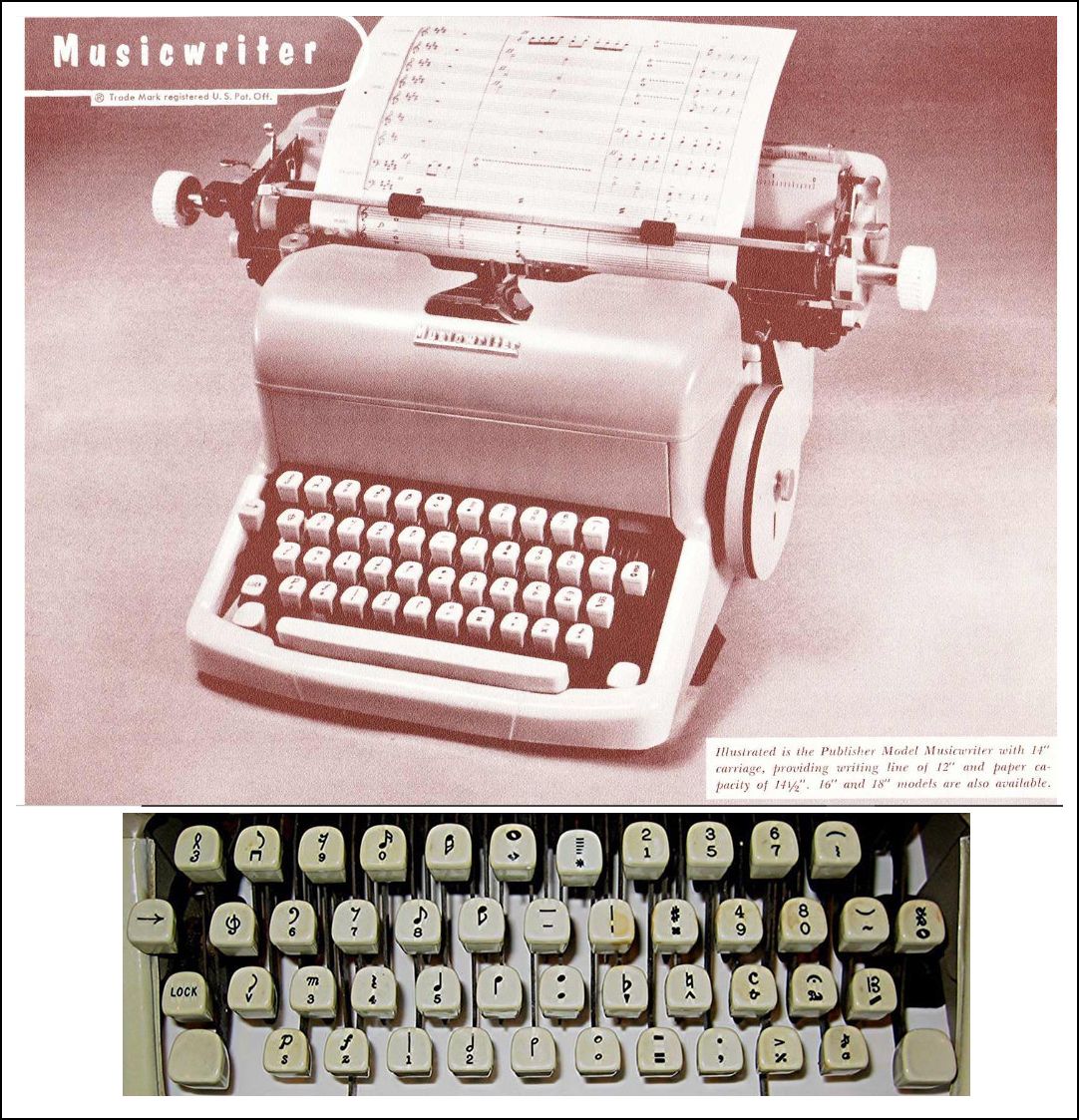
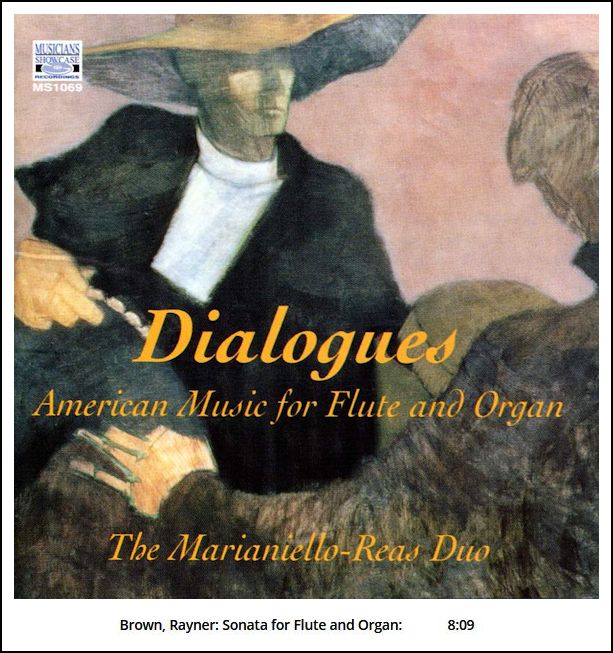 Brown: That’s it. I just got a
letter from him. He is working on another one now. This
is the one I have, and the one they do now is put out by Olympia, but he
keeps the business himself [Music Print Corporation]. That
machine will do everything except put in the slurs. I publish my own
music now completely, and anything I write is available through Augsburg
Publishing House. It’s really a Lutheran publishing house.
They have a store in Minneapolis, and seven or eight stores throughout
the country. Anyway, they sell all my music.
Brown: That’s it. I just got a
letter from him. He is working on another one now. This
is the one I have, and the one they do now is put out by Olympia, but he
keeps the business himself [Music Print Corporation]. That
machine will do everything except put in the slurs. I publish my own
music now completely, and anything I write is available through Augsburg
Publishing House. It’s really a Lutheran publishing house.
They have a store in Minneapolis, and seven or eight stores throughout
the country. Anyway, they sell all my music.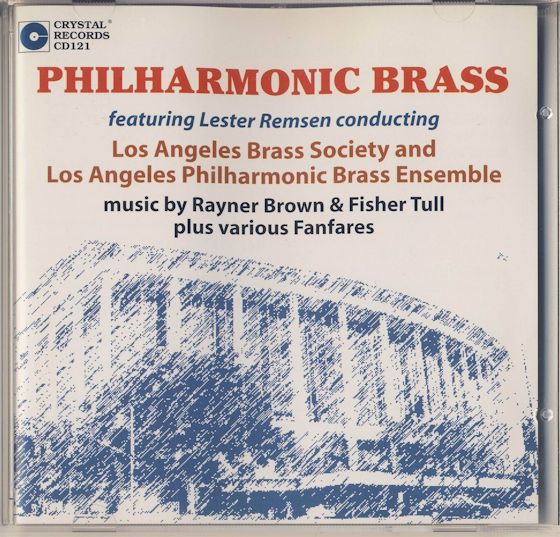 Brown: No, I don’t because I’m a firm
believer that you need a strong background for any type of music.
Maybe I’m wrong, but it seems that many colleges don’t want to teach
any traditional music. However, most people can tell the difference
between somebody that’s been properly trained or not. It is the
same with some of this modern art. Some of it is just paint thrown
on the page, and others show great technique because they have gone
through an art school. It is the same way in music. They
should have a thorough knowledge of all the periods of music, and then
they can write in the style of any composer. This will show even
if you’re trying to write for the movies.
Brown: No, I don’t because I’m a firm
believer that you need a strong background for any type of music.
Maybe I’m wrong, but it seems that many colleges don’t want to teach
any traditional music. However, most people can tell the difference
between somebody that’s been properly trained or not. It is the
same with some of this modern art. Some of it is just paint thrown
on the page, and others show great technique because they have gone
through an art school. It is the same way in music. They
should have a thorough knowledge of all the periods of music, and then
they can write in the style of any composer. This will show even
if you’re trying to write for the movies.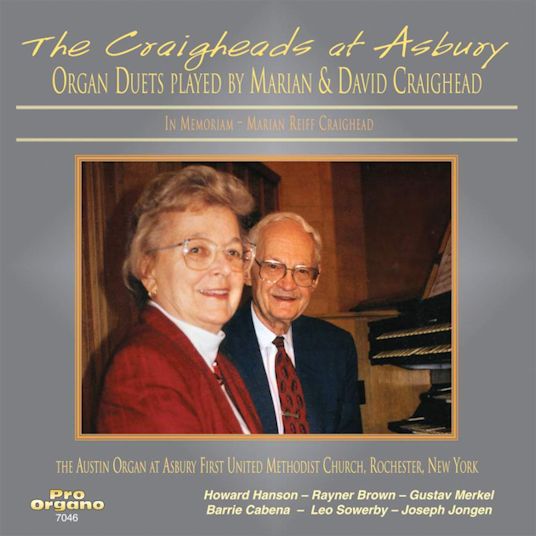 Brown: Yes, that’s right.
Brown: Yes, that’s right.| Pipedreams is a radio music
program produced and distributed by American Public Media (APM) based
in Saint Paul, Minnesota, created and hosted since its inception by J.
Michael Barone. Each one- or two-hour show features organ music, and
centers on a theme such as a particular instrument, venue, organ builder,
performer, composer, period, etc. The program has been in weekly national
broadcast syndication since 1983 (following pilot episodes in 1982),
and it remains the only nationally syndicated radio program in the United
States devoted to organ music. The program is available on APM-affiliated
stations and on the Pipedreams.org website. In recent years, Pipedreams'
weekly radio audience has fluctuated around 200,000 listeners. The program's
major sponsors include the Associated Pipe Organ Builders of America,
and the program's major accolades include the 2001 Deems Taylor Radio
Broadcast Award for Excellence from the American Society of Composers,
Authors and Publishers. |
|
Johann Nepomuk David (November 30, 1895 - December 22, 1977) was born in Eferding Austria. He was a choirboy in the monastery of Sankt Florian and studied at an episcopal teacher training college in Linz, 1912–1915, after which he became a school teacher. He studied briefly (1921–2) at both the Musikhochschule (where was a composition student of Joseph Marx) and the university of Vienna (where he studied with Guido Adler). He returned to Linz in 1922, where he acted as musical director of the Linz "Kunststelle" until 1924. From January 1925 until the autumn of 1934 he was a teacher at a local catholic school, founded and directed a Bach choir, and was organist at a Protestant church at Wels. He then became professor of composition and theory at the Musikhochschule in Leipzig (November 1934 – January 1945). From 1945 to 1947 he was professor of music at the Mozarteum, Salzburg, and finally, from 1948 to 1963, professor of theory and counterpoint (practically: composition) at the Musikhochschule in Stuttgart. At Stuttgart, he also directed the Bruckner choir (1949–52), the academy's chamber orchestra (1950–53).
David died, aged 83, in Stuttgart. His son, Thomas Christian David (1925–2006), was also a composer. His pupils included Johan Kvandal (1919-1999), Hans Georg Bertram (1936–2013), Seóirse Bodley (born 1933), Helmut Lachenmann (born 1935), Hans Stadlmair (born 1926), and Ruth Zechlin (1926–2007). Among his prizes are:
|
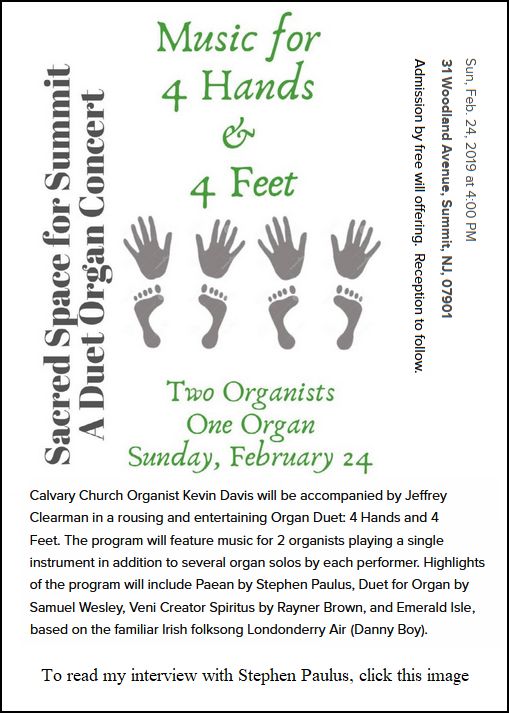 BD: Do you have an idea of why
it is happening?
BD: Do you have an idea of why
it is happening?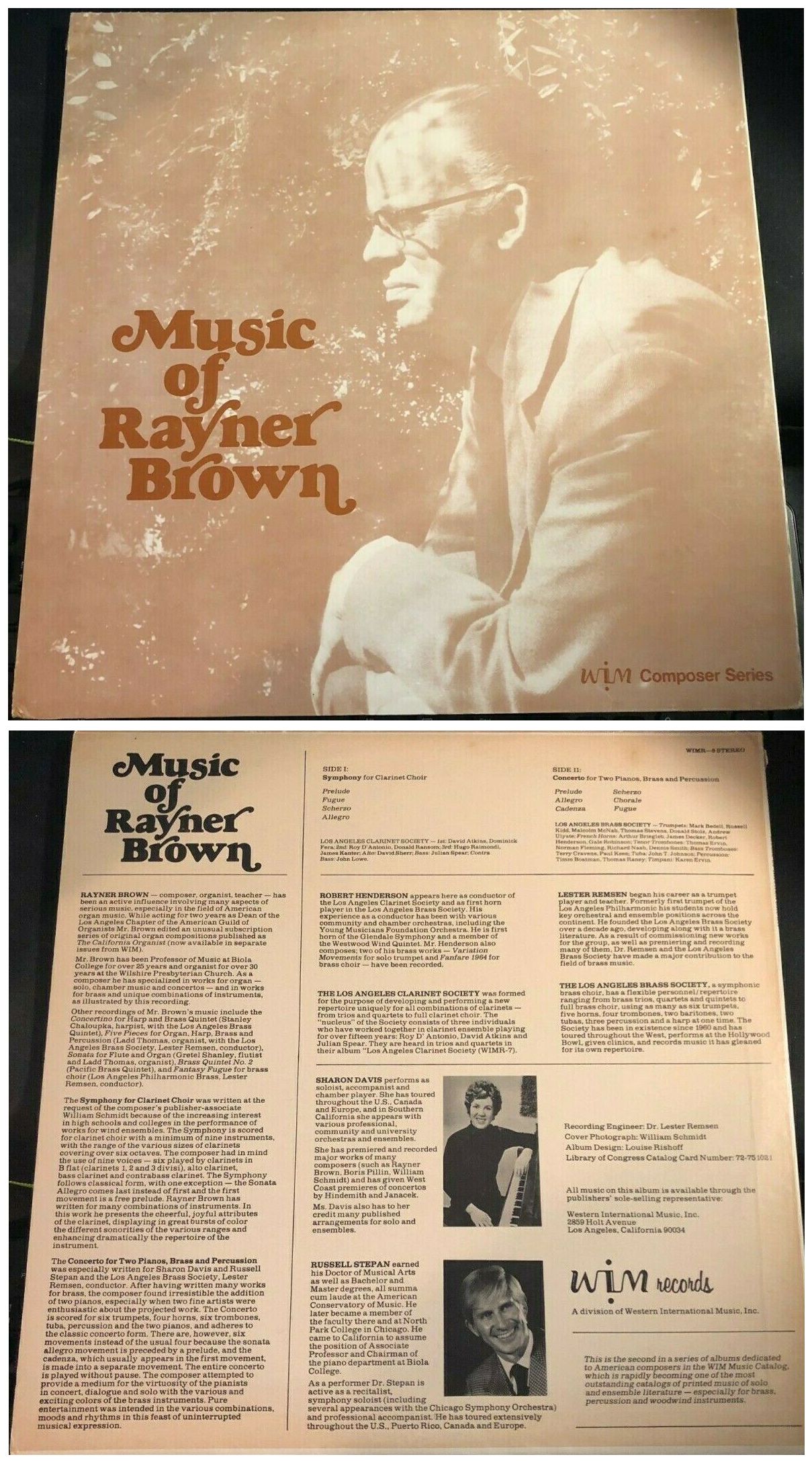
© 1987 Bruce Duffie
This conversation was recorded on the telephone on August 31, 1987. Portions were broadcast on WNIB in 1992 and 1997. This transcription was made in 2020, and posted on this website at that time. My thanks to British soprano Una Barry for her help in preparing this website presentation.
To see a full list (with links) of interviews which have been transcribed and posted on this website, click here. To read my thoughts on editing these interviews for print, as well as a few other interesting observations, click here.
Award - winning broadcaster Bruce Duffie was with WNIB, Classical 97 in Chicago from 1975 until its final moment as a classical station in February of 2001. His interviews have also appeared in various magazines and journals since 1980, and he now continues his broadcast series on WNUR-FM, as well as on Contemporary Classical Internet Radio.
You are invited to visit his website for more information about his work, including selected transcripts of other interviews, plus a full list of his guests. He would also like to call your attention to the photos and information about his grandfather, who was a pioneer in the automotive field more than a century ago. You may also send him E-Mail with comments, questions and suggestions.